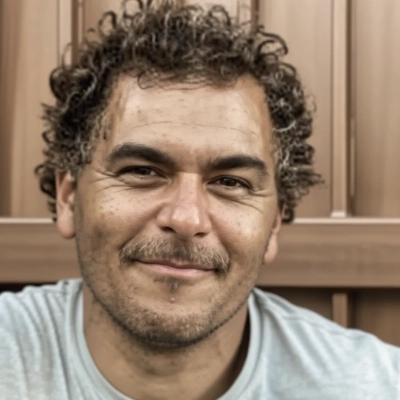5 Ways to Address Cultural Differences in Treatment Planning
Cultural competence is a crucial aspect of effective healthcare delivery in today's diverse society. This article presents expert-backed strategies for addressing cultural differences in treatment planning, ensuring patient-centered care. From viewing patients as cultural experts to integrating traditions into care, these insights offer practical ways to enhance cultural sensitivity in healthcare settings.
- View Patients as Cultural Experts
- Adapt Treatment to Family Values
- Integrate Cultural Traditions into Care
- Frame Therapy to Reduce Stigma
- Ask Questions and Seek Clarification
View Patients as Cultural Experts
My approach is to view the patient and their family as the experts on their own culture, replacing clinical assumptions with genuine curiosity. Coming from a South Asian background, my own instinct is to see the family unit as the central pillar of a patient's recovery. An early experience in my practice taught me that this, too, is a cultural lens that needs to be flexible.
I was working with an older adolescent from a family that deeply valued self-reliance. They encouraged him to manage his own appointments and medication, and they spoke of him with respect for his autonomy that, to my mind, initially felt distant. My instinct was to bring them in more, to try and build the cohesive, hands-on family support system I was so familiar with.
The parents gently pushed back. They explained that in their view, the greatest act of love and support they could offer their son was to trust him and empower his independence. Their stepping back wasn't disengagement; it was a deliberate strategy to foster resilience. It was a profound "aha" moment for me.
That experience taught me that support has many different faces. Now, I don't assume what an ideal support system looks like. I start by asking, "In your family, what does helping someone look like?" This ensures the treatment plan we build respects and reflects their unique cultural values, not my own.

Adapt Treatment to Family Values
When dealing with something as personal as addiction, you have to be open-minded about how different cultures and families approach healing. We're in Columbus, Ohio, and we serve people from all over the world, so we see this all the time. A one-size-fits-all approach to care simply doesn't work.
My go-to strategy is to listen without judgment. I never assume I know what's best for a person or their family. We once had a client whose family had very different cultural expectations of what recovery looked like. Their focus was on group and family support, while our treatment was more focused on individual therapy. The family was hesitant to trust our process.
We didn't dismiss their beliefs. Instead, we worked with them. We integrated their cultural and family values into the treatment plan, encouraging more family-focused activities and incorporating their traditions. We made a conscious effort to show them that we were listening and that we respected their approach to healing. The important lesson for me was that cultural competence isn't just about being aware of differences; it's about being willing to learn from them.
That willingness to adapt completely changed the outcome. It created a stronger foundation of trust, not just with the client, but with their entire family. My advice is simple: the most effective way to handle cultural differences is to be willing to learn from them. A business that truly wants to help people must be willing to learn from them and their families.
Integrate Cultural Traditions into Care
Hello, my name is Amanda Ferrara, LMFT. I am a Program Therapist at Ocean Recovery in California. We would like to contribute to your article! Here are the links to our website, staff page and my LinkedIn.
https://www.oceanrecovery.com/
https://www.oceanrecovery.com/about-ocean-recovery/our-staff/
https://www.linkedin.com/in/amanda-ferrara-bb6769214
Here are our answers and responses to your query:
To address cultural differences when developing treatment plans, I believe it is best to start with curiosity and understanding, rather than make assumptions. Psychologists and psychiatrists are trained to ask open-ended questions about a patient's background, their values, family, spiritual beliefs, and cultural traditions. This helps understand where the client is coming from and provide insight into their understanding of mental health, symptoms, and healing.
Adaptation and communication of intervention is extremely important, where language, metaphors, and even treatment goals may need adjusting. For example, some cultures have negative stigma surrounding mental health. Framing therapy in a more approachable and welcoming manner regarding stress management or family harmony may make it more acceptable. We must also collaborate with the patient's context, meaning that rather than imposing one standard treatment model, culturally competent clinicians must integrate practices that align with the specific patient's background. This may include involving family in therapy sessions, respecting traditional healing methods, and considering other cultural practices.
It's not as rare as you'd think to have clients who come from a community where mental illness carries significant stigma. They initially resist therapy because they were afraid to be labeled. I learned to frame these sessions not as treating a disorder, but as improving stress management and family well-being. That shift in perspective helped reduce shame and respect their cultural concerns. This allowed the client to become more open over time, enabling real progress. Cultural competence isn't about memorizing customs, it's about understanding and adapting in how we approach care.

Frame Therapy to Reduce Stigma
In my experience, most cultural differences in healthcare arise when managing a patient's treatment plan, and it's crucial to be open and respectful to each person, regardless of their background. When I notice a difference or deviation from standard practice, I ask questions to understand why they may reject or prefer a certain plan and seek clarification.
It's best not to assume, as some patients have experiences that reinforce their cultural beliefs.
Listening to them, explaining, and addressing doubts are important for finding common ground. For example, I adapted to using tablets instead of injectables for a young woman with cultural beliefs against that route of medication.

Ask Questions and Seek Clarification
You know what really taught me about cultural competence?
It was working with a Vietnamese couple about three years ago dealing with infidelity. I went in with my standard approach: the transparency protocol, the disclosure session, all of it.
For weeks, I kept hitting this wall. She would sit there, perfectly composed, but I could feel her pulling away from the process. When I'd suggest the formal disclosure, she'd nod politely and then find reasons to reschedule. He seemed willing, but there was this tension I couldn't figure out.
About two months in, she finally said something that stopped me cold: "In our culture, when there are problems in the family, we don't air them to outsiders. It brings shame to everyone." I realized I'd been asking them to violate something fundamental about their values. The whole Western idea of "radical honesty" and "full transparency" felt culturally violent to them.
Fast forward about eight months, and I'm working with a French couple dealing with a similar situation. Based on what I'd learned, I started gently; suggested private conversations, focused on actions over words.
She looked at me as if I was patronizing her. "We are not children," she said. "I want to understand what happened. We can discuss this rationally." When I finally offered the full disclosure approach, she practically rolled her eyes at how long it had taken me to suggest something so obvious.
Their process was completely different. Intense intellectual discussions about the psychology of infidelity, heated but respectful arguments about boundaries, even moments where they'd laugh at the absurdity of some situation. What would have devastated the Vietnamese couple felt like collaborative problem-solving to this one.
That taught me that I can't just apply one model and hope it fits. Sometimes being culturally competent means completely abandoning what I think therapy should look like.



